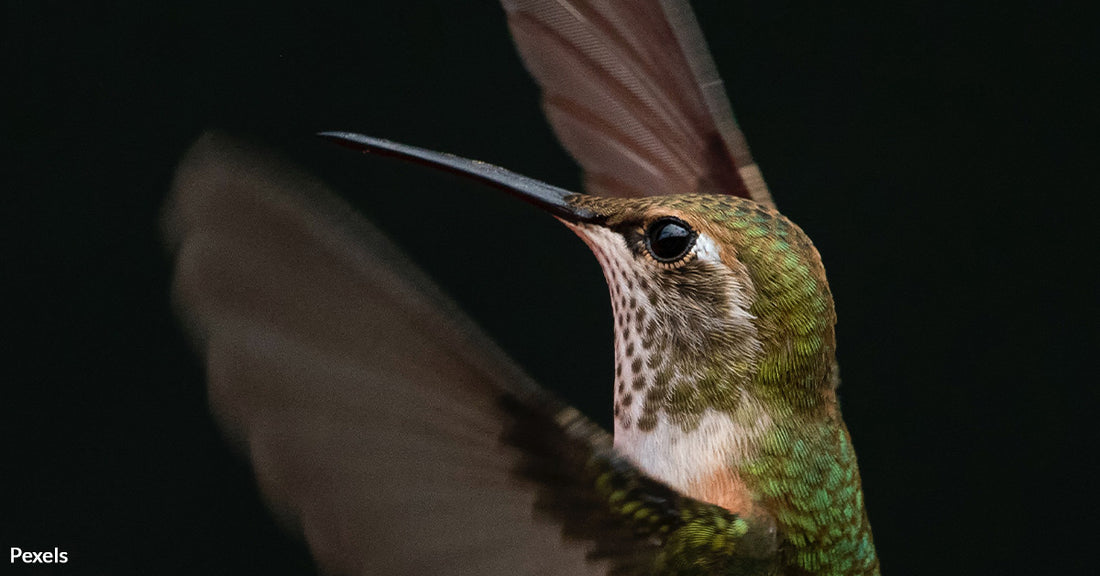Hybrid Hummingbird Stuns Scientists: The Gold-Feathered Enigma of the Peruvian Andes
Matthew Russell
In the world of birds, hummingbirds are renowned for their vibrant colors, dazzling iridescence, and extraordinary agility. But nestled deep within the Peruvian Andes, scientists stumbled upon a discovery that left them utterly perplexed.
A never-before-documented hummingbird species, adorned with glittering gold feathers, has emerged from the heart of Cordillera Azul National Park, USA Today reports. However, what truly baffled researchers was that this avian marvel was not a new species at all. Instead, it unveiled an intricate tale of hybridization, challenging conventional wisdom about hummingbird evolution.
A Hummingbird of Many Facets
According to the Chicago Field Museum, these enigmatic hummingbirds represent a remarkable fusion of two distinct species native to western South America: the Pink-throated Brilliant hummingbird (Heliodoxa gularis) and the Rufous-webbed Brilliant hummingbird (Heliodoxa branickii). Their existence, detailed in a recent publication in the journal Royal Society Open Science, has left ornithologists both thrilled and mystified.
John Bates, the senior author of the study and curator of birds at the Field Museum, vividly recalls his initial encounter with the hybrid hummingbird.
"I looked at the bird and said to myself, 'This thing doesn't look like anything else.' My first thought was, it was a new species," he said.
 Photo: Pexels
Photo: PexelsHummingbirds are among the smallest birds on Earth, with some species weighing as little as 2 grams.
Breaking the Genetic Mold
Hummingbirds, known for their exquisite throat colors, typically avoid interbreeding with other species, the Field Museum reports. But the appearance of these hybrid hummingbirds challenges the status quo.
Both parent species, the Pink-throated Brilliant and the Rufous-webbed Brilliant, are characterized by their vibrant pink throats. Yet, when these two species merge, they give birth to an avian rarity—an iridescent gold-throated hummingbird.
 Photo: Pexels
Photo: PexelsThese tiny birds are native to the Americas and are not found anywhere else in the world.
The Timeline of Color Evolution
Within the hummingbird family, members of the same species typically do not exhibit dramatically different throat colors, the Field Museum maintains. As such, these unique hybrids might hold the key to understanding the diversity of structural colors that grace the hummingbird family tree.
To put this dazzling transformation into perspective, consider the timeline of color evolution in hummingbirds. Using the remarkable pace at which hummingbird colors evolve, scientists estimate that it would take 6 to 10 million years of evolutionary adaptation for such a profound pink-to-gold transition to occur within a single species.
 Photo: Pexels
Photo: PexelsThere are currently 363 recognized hummingbird species, and that number continues to grow as new species are discovered.
Unveiling the Iridescent Secret
The secret behind these hummingbirds' enchanting hues lies in the intricate world of iridescent feather colors. According to the Field Museum, most feathers derive their color from pigments like melanin (black) and carotenoids (red and yellow), but hummingbirds take a different route. Their feathers possess iridescence, All About Birds reports, a captivating play of color that depends on how light interacts with micro- or nano-structures on the feather's surface. This structural coloration results in the spectacular shimmer of hummingbirds.
The Marvels of Hummingbirds
As we unlock the mysteries of hybrid hummingbirds and their iridescent allure, we gain a deeper appreciation for the wonders of these remarkable birds. In a world where evolution constantly surprises us, the dazzling pink-to-gold transition of these hybrids stands as a testament to nature's boundless creativity.
Sign our pledge to save hummingbirds. Click below to make a difference!

